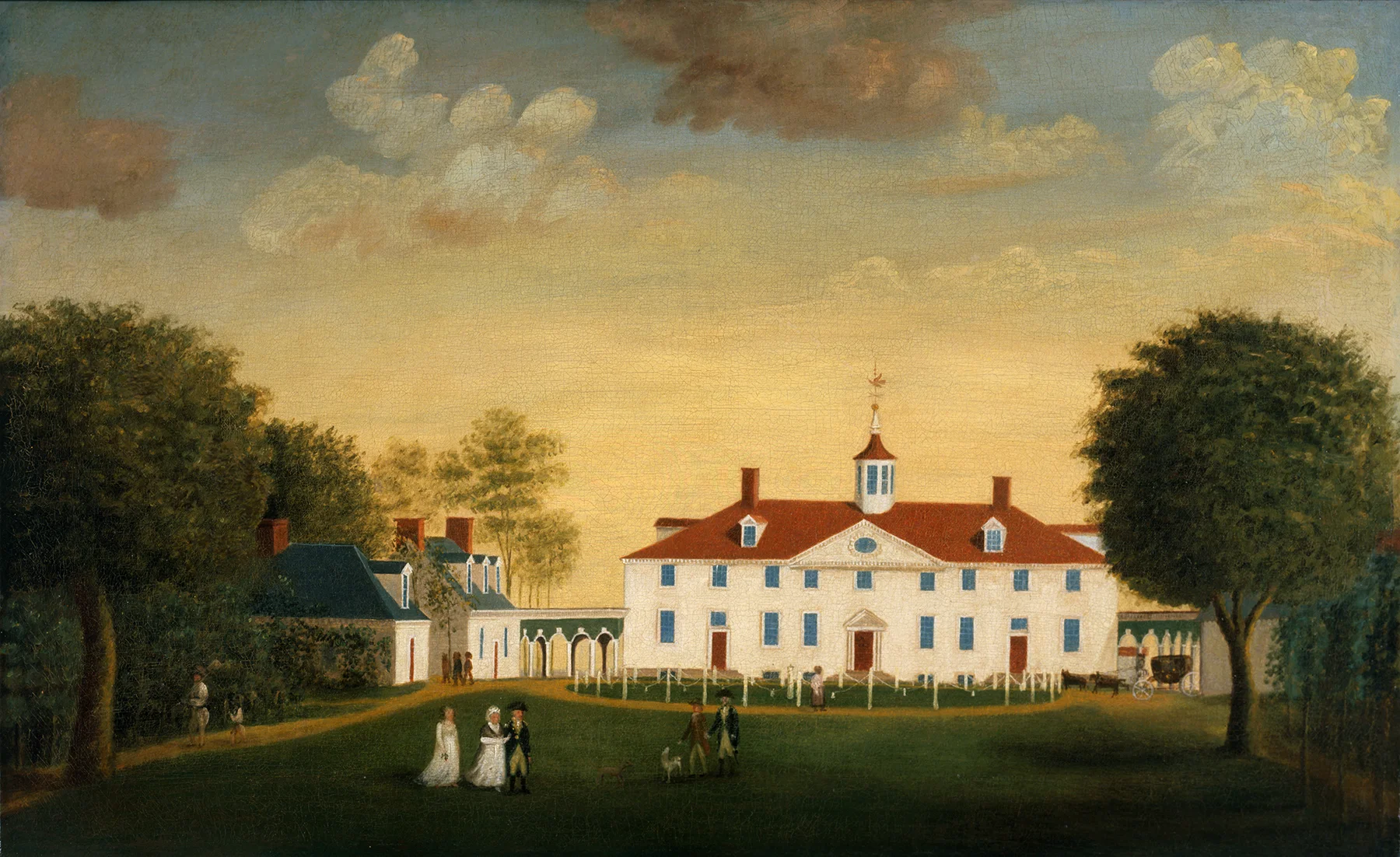Alexander Henderson Attends The Mount Vernon Conference
Alexander Henderson lies on the fringes of what we might consider a Founding Father. Though he sided with the Patriots, he was part of the estimated 1/3 of Americans who did not participate actively in the Revolutionary War.
Instead, he tended to his mercantile business on the Potomac River and participated only in local politics.
He was, however, much esteemed by his colleges and was present for a major turning point in the creation of the US Constitution: the Mount Vernon Conference.
Alexander Henderson
Alexander Henderson moved from Scotland to Virginia when he was 18 years old. From there, he began a career as a merchant.
At the time, many British merchants purchased crops on credit from large plantations to sell in Europe. Henderson, however, was part of a wave of store owners who purchased locally from small farmers.
His shop would also barter with customers as well as carrying a variety of basic goods.
Border Issues
In the Declaration of Independence, the colonists’ first complaint against the king would be ‘He has refused his Assent to Laws, the most wholesome and necessary for the public good.’ We find an example of this from the year before the Declaration was written.
In 1775, the border between Maryland and Virginia was being debated.
To settle the issue, a conference was held between the two colonies. As a shop owner on the Potomac who had customers from both states, Alexander Henderson was chosen to represent the Virginia delegation.
This meeting was important because it was one of the first demonstrations that the colonies could settle disputes amicably without the oversight of the King or Parliament.
Inactive Revolutionary
During the American Revolutionary War, Henderson served briefly with the Virginia militia.
He spent most of the Revolution tending to his mercantile business, though he did serve in the Virginia House of Delegates.
This was not out of the ordinary. Although we like to think that every Patriot served in the Continental Army for all eight years of the war, the country still needed businesses to operate for the economy to be salvaged from total ruin.
The Mount Vernon Conference
After the war, Alexander Henderson was chosen to represent Virginia in a meeting with Maryland to discusses the mutually beneficial changes to improve navigation on the Potomac River. He was picked for this largely based on his past experiences.
The Maryland delegates (Samuel Chase, Thomas Stone and Daniel of St. Thomas Jenifer) arrived early and were invited by George Washington to stay at his house. The discussions, it was decided, would take place there.
This meeting became known as the Mount Vernon Conference.
Henderson was joined by George Mason (James Madison and Edmond Pendleton were also chosen but received word too late to attend). Washington was present but not an official delegate.
After a week of discussion, the committee members presented a plan for improving navigation of the river to both States. The agreement also resolved the means by which they would work together in the future.
Maryland and Virginia both agreed to the plan, as well as inviting Delaware and Pennsylvania to participate.
Aftermath
In the aftermath of the Mount Vernon Conference, many States realized the need to work more closely together. Under the Articles of Confederation, the States considered themselves separate countries who were close allies instead of one united nation.
As a response to the progress made by the Mount Vernon Conference, the Annapolis Convention was called for the following year. At Annapolis, the delegates were to discuss changes to the Articles of Confederation to make these types of agreements more feasible.
The Annapolis Convection did not get enough representatives to complete its work, but it did lead directly to the calling of the Philadelphia Convention, which wrote the Constitution.
Later Years
As for Alexander Henderson, his participation in creative the new nation ended after the Mount Vernon Conference.
His merchant business grew to include four shops on the Potomac. I have heard him referred to as the ‘Father of the American Chain Store,’ but this is hard to believe. They were run as separate businesses as opposed to the real first chain store (A&P) which had hundreds of locations all operated together.
If you enjoyed this article, please remember to subscribe to the email list for a new Founder every day!
Unfortunately, since Henderson was a minor character in the nation's Founding, information on him is limited and I do not have a book to recommend. To learn more about the creation of the Constitution, however, I recommend 'Plain, Honest Men.' You can read my review of it here.




